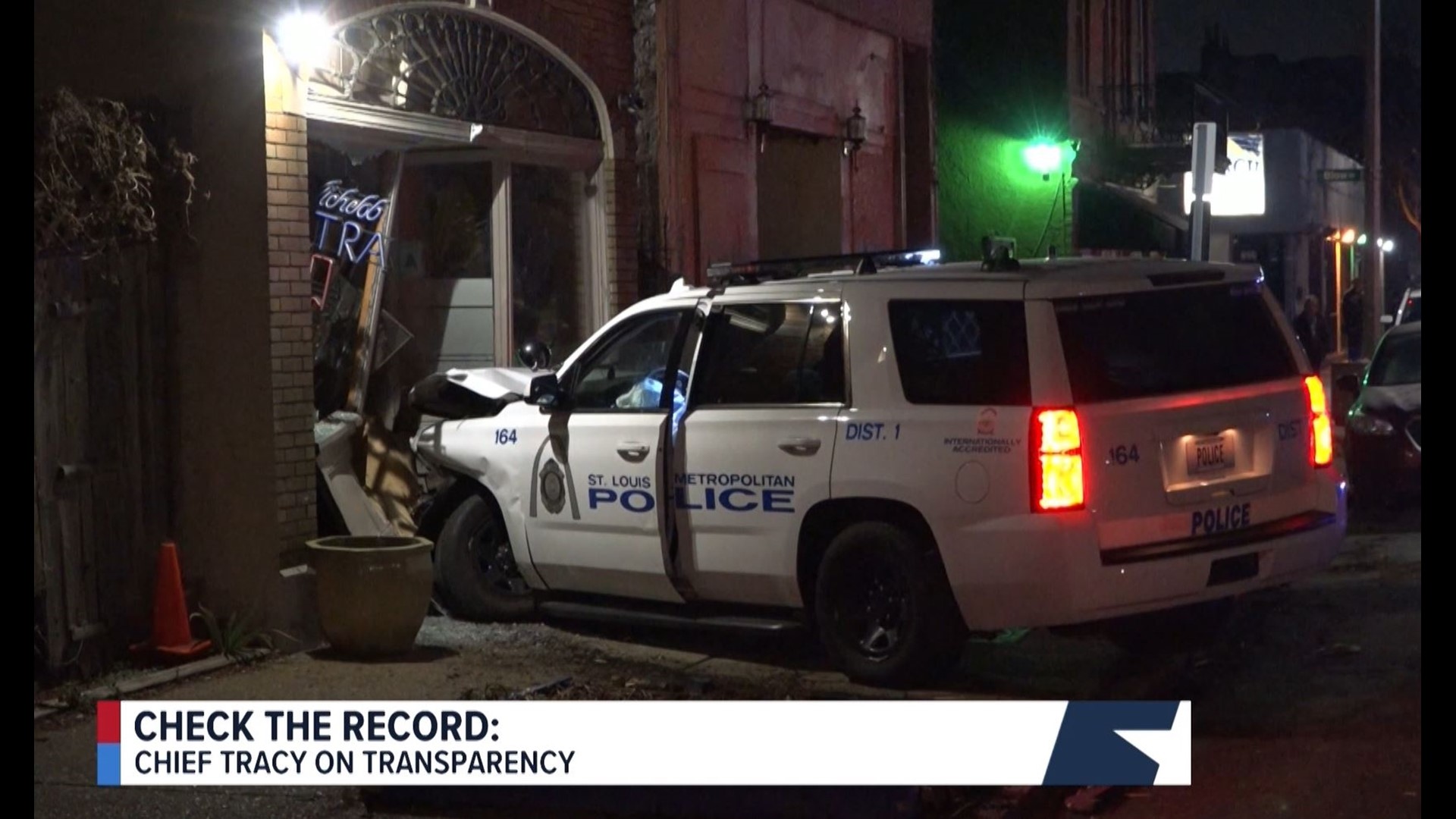During the St. Louis Mayor's "State of Public Safety" address, Mayor Tishaura Jones spoke highly of Chief Robert Tracy's leadership. But when the chief was pressed about releasing the body camera footage of a police SUV crashing into a South City bar, he had this to say:
"When it comes to body worn camera [footage], I'm limited by the Sunshine Law, and I'm limited by the state laws here in what I can release, what I can't release."
It's true. State law does allow police to keep body camera footage from public view if its release would "jeopardize a criminal investigation." The law further explains that police can withhold footage in the case that releasing it would put a confidential informant in harm's way.
That's not the case with the crash at Bar:PM, which is a gay bar owned by Chad Morris and James Spence.
The officer who crashed the SUV into the building apologized. A different officer responding to the crash put one of the bar owners in handcuffs. That same officer then arrested the co-owner after some sort of apparent physical altercation. That is still under investigation.
Some city leaders have been shown the video and say the bar's co-owner may have shoved the officer, who the co-owner claimed punched him.
State law says an investigation is no longer considered active —meaning police can release the video— once the courts have either convicted the suspect and the case is closed or when police decide "not to pursue the case."
When asked about this point, Chief Tracy said this:
"You're telling me that I could release it, but I can't. There's a criminal case going on and there's also an internal investigation, and I'd rather not compromise an internal investigation on this."
The continued questions around when and if the bodycam video will be released also raise the question of Chief Tracy's policies for sharing records with the public. When asked about his transparency standard going forward, he said:
"It would have to go [on] a case-by-case basis. I would have to check with my city council. I have to check with the circuit attorney. I have to look at what type of case that I'd be compromising, but I'm open to taking a look at what we can and can't do."
There is nothing in the law that says Chief Tracy must release the video. A court could order could do that.
A public record is a focal part of a functioning democracy. That paper trail helps us know what our government does in the name of its people. According to a document put out by the U.S. Department of Justice, "Open access to public records is a cornerstone of American democracy."
That document has been widely circulated in academia and cited in briefs to the U.S. Supreme Court. The information privacy experts who wrote it say:
Yes, governments, at times, keep secrets. Sometimes, those secrets are kept to protect the lives of soldiers or spies. But far too often, secrets are kept to protect politicians —or the governments they run— from embarrassment.
But those same privacy experts say that:
"Open access recognizes that citizens have a right to obtain data that their tax dollars have been spent to create or collect."
America is, after all, a government of, by, and for, the people — which means Americans have a right to know what their government is doing.
When Chief Tracy took the job in January of 2023, he told St. Louisans that he believed in transparency, saying, "My core values is about transparency. You'll see that as I go along."
The question is, will he demonstrate that?

